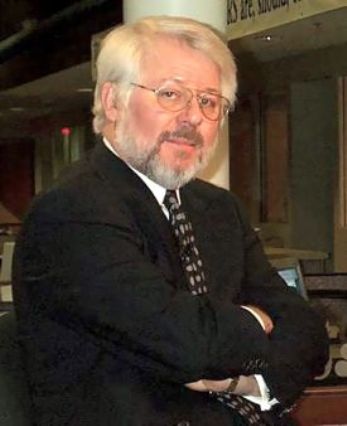What happens to a whistleblower after they blow the whistle? Are they considered heroes or villains? Do their actions inspire others, or are the personal risks too great?
Those are some of the questions that are explored in a podcast(Mar. 11), by Julia Taylor Kennedy for the Carnegie Council for Ethics in International Affairs.

Taylor Kennedy begins her conversation by talking to former tobacco insider, Dr. Jeffrey Wigand.
“I had spent 20 years in the health care industry,” Wigand says, “and some of the things that I saw, I observed and learned while I was there really bothered me . . . and I [continued] taking my issues to the president and chief operating officer of the company, Tommy Sandefur. And he kept blowing me off.”
What bothered Wigand was a process at Brown & Williamson that was deeply flawed.
“Lawyers changing documents. Lawyers controlling science. Disregard for public health and safety. Targeting children, etc., etc., etc. And that bothered me greatly,” Wigand points out.
As a scientist, Wigand became particularly upset about B&W’s use of Coumarin, an organic chemical compound that sweetens the taste of tobacco. However, the research demonstrated that it also caused tumors in the livers of mice.
“I took the data to Sandefur,” Wigand tells Taylor Kennedy, “and he told me basically, he wasn’t going to take it out, because it would affect sales and hence, would change the taste of the product – and it was his decision, not mine. Well, that bothered me greatly.”
Wigand went on to work with the FDA, albeit anonymously. “I used to travel back and forth to the Food and Drug Administration from Louisville, Kentucky under an assumed name. I would go through unmarked entrances, and deal with [FDA Chief David] Kessler and his staff on the science of addiction; how nicotine was made more potent with various additives; and how they targeted children; and how they engineered tobacco to have a higher nicotine content.”
Ultimately, Wigand appeared as a whistleblower in a celebrated story for the CBS News program 60 Minutes. However, the cost for doing the right thing was profound. He lost his job, his house, his marriage and, for a time, his reputation.
As Wigand points out: “I think that most of the people who come forward are not prepared to do it. You’ve got to know that you will never, ever, ever be the same again. And you’ve got to understand that there is no sacrosanct environment that you can go to that you’re not exposed in.”
Wigand mentions former FBI agent Coleen Rowley who spoke out about how the FBI mishandled the case of 9/11 co-conspirator Zacharias Moussaoui.
“Coleen Rowley and I talk frequently, [and] “Jim Murtagh,” Wigand adds, “I mean we talk on a regular basis.
Murtagh exposed fraud and corruption at Emory University.
“I mean, they are struggling,” Wigand says. “Coleen’s struggling.”
With all the personal struggles, Taylor Kennedy asks Wigand an obvious question: Would you do it all again?
“Most certainly yes,” Wigand says. “I mean there is no conflict in my mind on that issue. I am free. And what set me free was the truth.”
While the truth may indeed, set you free, it does not necessarily mean that you are going to find any easy path forward for yourself and your family.
While Jeff Wigand continues to speak out against the business of marketing tobacco to children, he continues to receive death threats.
Before any individual decides to come forward and report misconduct, they must carefully consider the consequences of their actions. While the personal risks appear great in reporting fraud, abuse or misconduct, the cost of failing to do so can be considerably greater. Ask executives at oil giant BP, J.P. Morgan Chase, and GM.
As GM CEO Mary Barra is discovering firsthand, that cost is a recall of 1.5 million vehicles worldwide due to faulty ignition switches that are capable of cutting off engine power and disabling air bags in GM Cobalts and other small cars.
Clearly, the personal decision to blow the whistle is far from easy, but, as the opening quote from Somerset Maugham’s novel, The Razor’s Edge makes clear:
“The sharp edge of a razor is difficult to pass over; thus the wise say the path to Salvation [or for GM – a trustworthy Reputation] is hard.“
Comments









